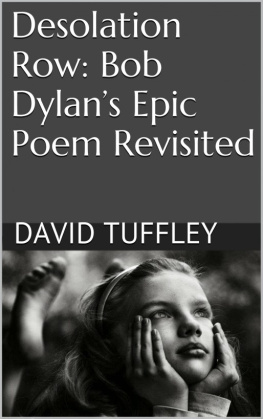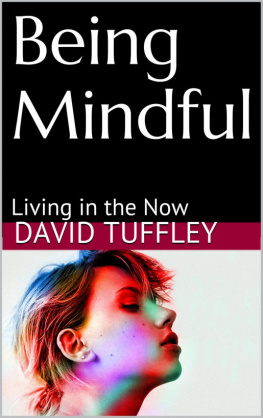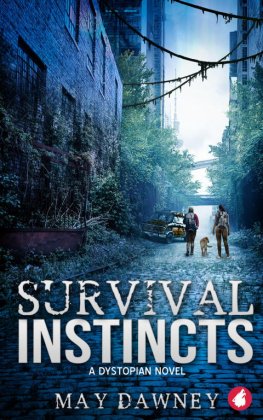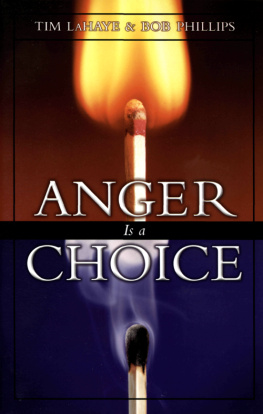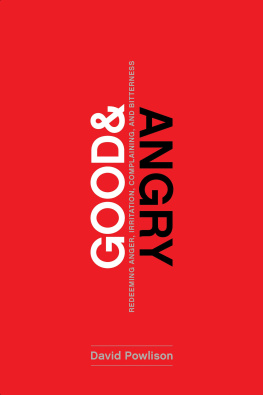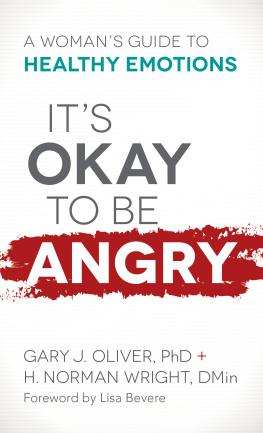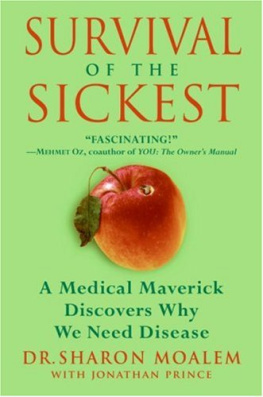AngerManagement
A self-helpguide
David Tuffley,PhD, M Phil.

Published by AltioraPublications at Smashwords
Join David on Facebook
Anger is anacid that can do more harm to the vessel in which it is stored thanto anything on which it is pouredMark Twain
Copyright2012 David Tuffley
SmashwordsEdition, License Notes
This eBook islicensed for your personal enjoyment only. This eBook may not bere-sold or given away to other people. If you would like to sharethis book with another person, please purchase an additional copyfor each recipient. If youre reading this book and did notpurchase it, or it was not purchased for your use only, then pleasereturn to Smashwords.com and purchase your own copy. Thank you forrespecting the work of this author.
Contents
Anger Management: a Self-Help Guidegives you a fresh perspective on the nature of anger. Once you seeit in this new light, it becomes easier to manage. You understandwhat it is. It will never go away completely since it is part ofhuman nature, but it can be brought under control so that it doesnot continue to create problems for you or the people aroundyou.
Anger is part of the ancient arsenal of survivalinstincts that we inherited from our evolutionary past. Ourancestral environment was a dangerous place in which peoplestruggled to survive and anger got us ready to fight for ourlives.
In your worldtoday, are there still dangers lurking around every corner andbehind every bush? I hope not. More likely, you live in amore-or-less civilised society that has solved many of thechallenges to survival that faced our ancestors. For many of usthough, our survival instincts are still on high alert, as thoughwe are back in the jungle or on the savannah and predators werenever far away.
If we live in acivilised world, why do we still get angry? Our circumstances mayhave changed, but our basic natures have not. We are very similar,genetically-speaking, to our ancestors from 100,000 years ago. Ifyou took a man or woman from that far distant time, cleaned themup, gave them a good haircut and dressed them in modern clothes,they would be indistinguishable from anyone else on the street.
Part of thereason for peoples anger in the modern world is that it is acomplicated, crowded, often confusing place. We evolved in extendedfamily groups of less than a hundred, often much less. Large crowdsfeel threatening to many people for this reason.
Modern liferequires us to behave ourselves for the good of society, but thecrowded, complex nature of modern life is itself the cause ofprimitive behaviour. We are not supposed to feel that way, but wedo. It makes us feel that there must be something wrong withus.
I must emphasise that thiseBook takes a cognitive psychology and evolutionary biology view.It does not take a religious view. There is one example fromreligion that is helpful though; the Seven Deadly Sins. Itillustrates very well the point that our primitive natures wereonce useful for survival, but these no longer serve us well in themodern world.
As we know, theSeven Deadly Sins prescribe certain behaviours as morally wrong.Yet these were once useful for survival; anger, greed, laziness,pride, lust, envy and gluttony. It is one of thefunctions of religion to prescribe how not to behave in society.This example is from Roman Catholicism, but all religions makesimilar prescriptions.
Angerwarns us of impending attack, and gets you ready to fight.
Greedmakes us acquire excessive quantities of the things we need tosurvive in case there is a shortage later.
Sloth orlaziness conserves energy. Food was scarce in the Pleistocene withits repeated Ice Ages; people would have been cold and hungry ifnot starving for much of the time. Survival would have depended onconserving ones energy for the high-dividend activities likehunting or defence.
Prideenhances self-esteem. High self-esteem improves survivabilitybecause it leads us to value ourselves and therefore be more likelyto claim and fight for the resources we need to survive. Humans aresocial creatures who like to live in hierarchical groups. Prideallows us to claim a higher place in the hierarchy, with all theprivileges that goes with it.
Lust issimply the powerful desire to pass on ones genes to the nextgeneration as many times as possible. Mortality rates in thePleistocene were much higher than in the modern world, so frequentreproduction was necessary.
Envymakes us want what other people have. Because they have it and wedo not, it must be something worth having. Maybe they knowsomething we do not. In any case we do not want to be left out, orleft behind. That can get you killed.
Gluttonytakes advantage of abundant food while it lasts, laying down fatreserves to help us through the famine that was always just aroundthe corner. There was no regular, consistent supply of food untilthe advent of agriculture 13,000 years ago. Before that, forhundreds of thousands of years, our hunter/gatherer ancestorsfeasted on the occasional successful hunt, and made do with whatcould be gathered from plants the rest of the time.
Science helpsus to understand that much of our behaviour today can be attributedto our primitive past. This is no reason to feel guilty. It issimply a fact of human nature. Using our more highly evolved,logical minds, we are able to make conscious, rational choices torefrain from behaving in these ways.
Some of ourinstincts still serve us well; for example the instinct to love andnurture our children, the instinct to be altruistic for the benefitof our families. By being fully aware of the situation, we canchoose to continue behaviour that is helpful, and discontinue thatwhich is unhelpful.
We have allexperienced anger to varying degrees, from mild irritation toblinding rage. At the physiological level, it causes the release ofadrenaline and noradrenaline. Broadly speaking, these have theeffect of increasing your heart rate, raising your blood pressure,dilating the pupils of your eyes, dilating the air passages of yourlungs and constricting the flow of blood to your non-essentialorgans. All of this gets you ready for a fight or to run fast tomake your escape, the so-called fight or flight response.
Experiencing any strongemotion has the effect of switching off your higher, rational mind.It is difficult or impossible to think rationally when you aregripped by powerful emotions, including anger. Propagandists knowthis. When trying to persuade you to their point of view, they willfirst try to arouse your emotions.
Strong emotiontakes us back to a more primitive state of mind that our ancestorsexperienced. This was recognised a long time ago by thephilosophers of ancient Greece who advocated the cultivation ofreason over emotion. This has been one of the foundation stones ofwestern civilisation.
The Stoics werea prime example. Influenced bythe earlier work of Socrates, the Stoic school of philosophy taughtthat a wise person should not allow their emotions to rule them;instead they should master their emotions and use logic to thinkrationally about how to live in harmony with Nature.
Given that anger is going to arise in us from timeto time, the rational thing to do is adopt strategies for dealingwith it that are either constructive or result in no harm. Societyexpects nothing less from us.
The followingthree methods can be used individually or in combination. They areuseful for the majority of occasions when anger arises in thecourse of your daily life.



